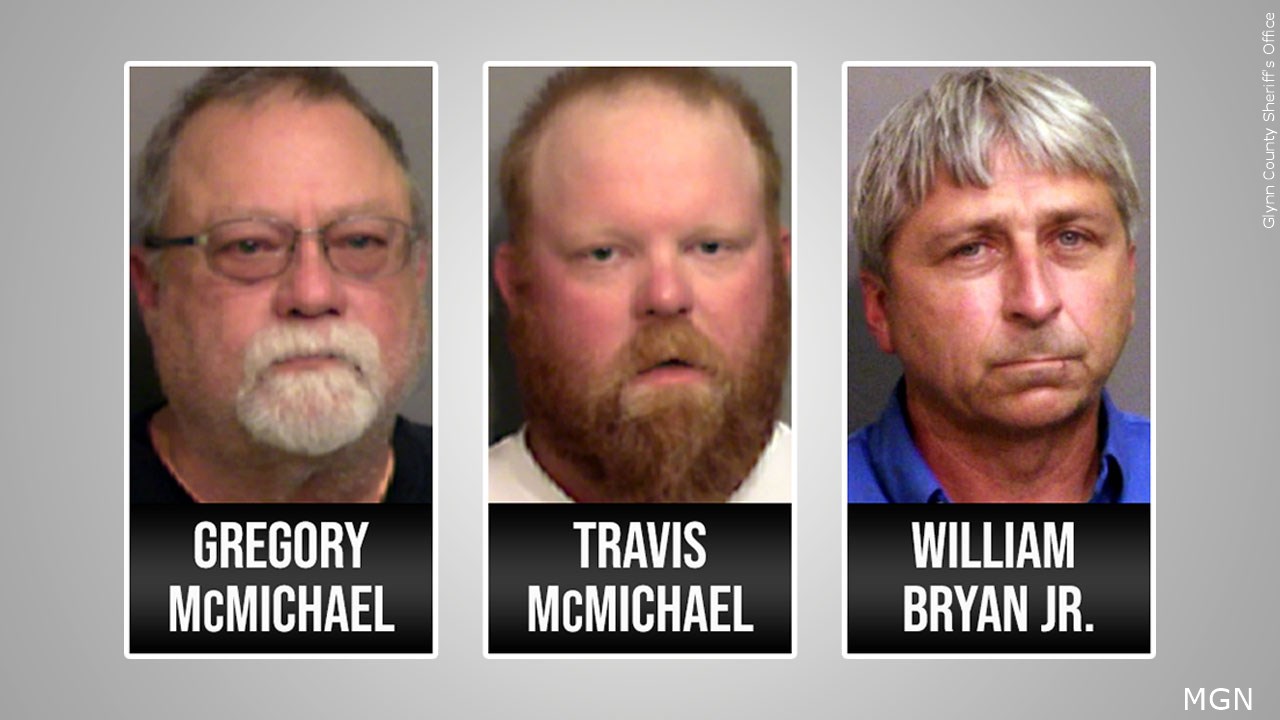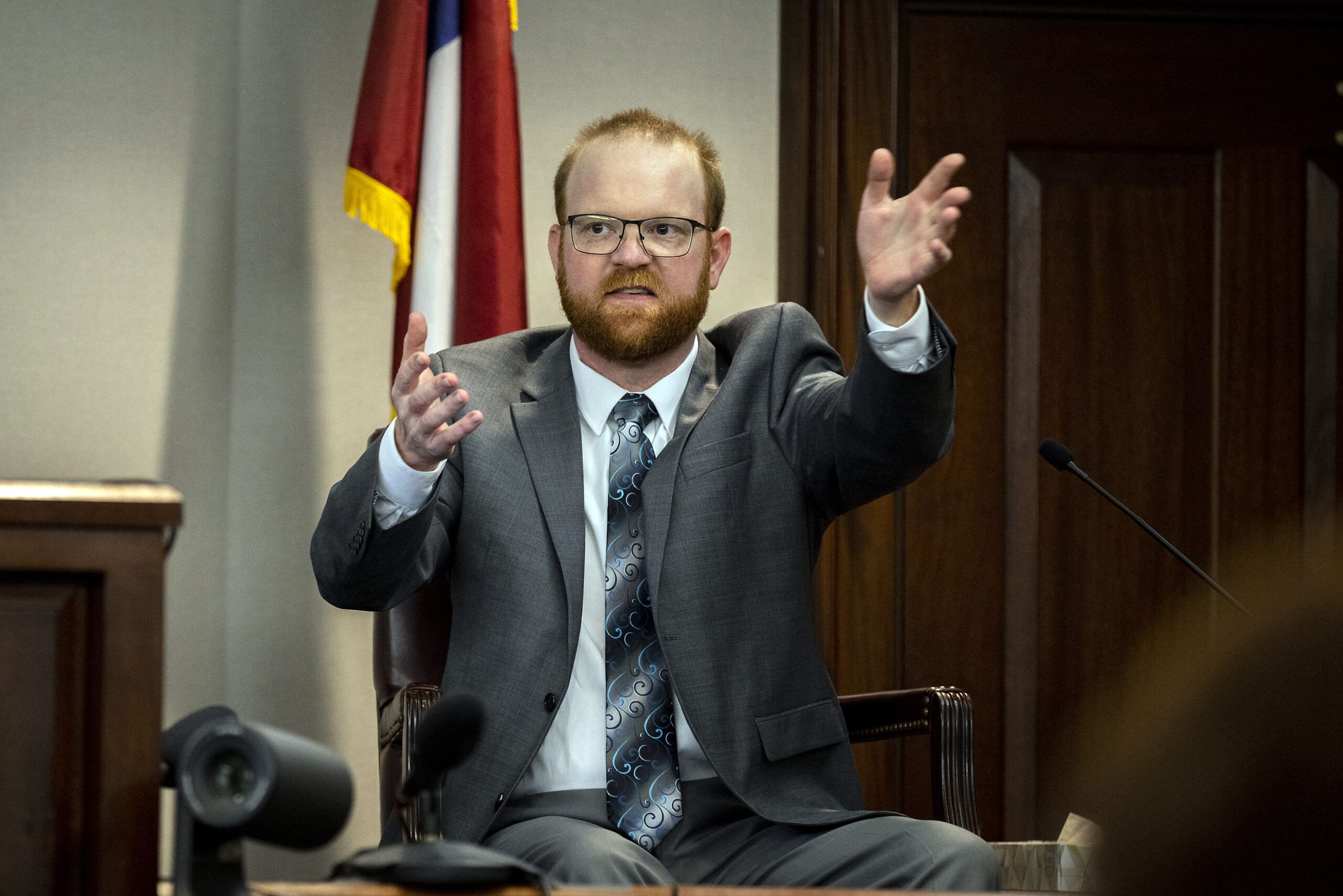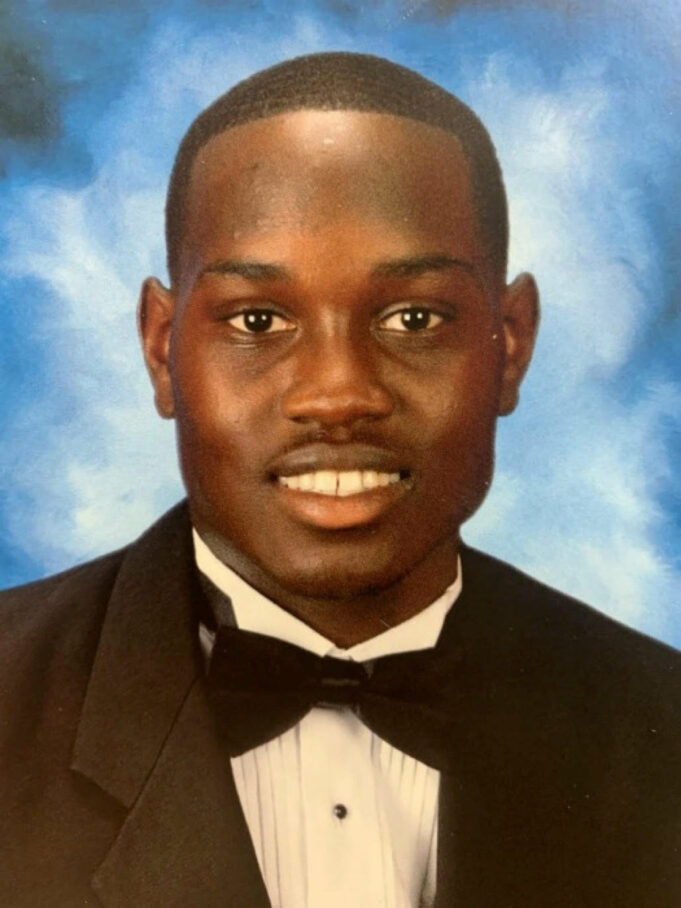by Naba’a Muhammad, Brian E. Muhammad and Nisa Islam Muhammad
There were protests by religious leaders, alongside defense calls to bar Black pastors from a Georgia courtroom with potential Black jurors racially weeded out. And a White man shot an unarmed Black man to death but claimed to be the victim.
All of it revived old notions, old narratives, and sadly, reminders of the old pain of often lost Black lives.
The trial of the killer of the true victim, Ahmaud Aubery, and two others who chased the young Black man who jogged through a White neighborhood captured the nation. The trial outcome lay with jurors at Final Call presstime. The jury was contemplating its decision as a White youth who shot and killed two White men and wounded another in Kenosha, Wisc., was acquitted of murder charges.
Kyle Rittenhouse was in the Wisconsin town to help keep order as protesters turned out to condemn the police shooting of Jacob Blake, Jr., a Black man, in the back paralyzing him. The onetime assault rifle toting teen was freed Nov. 18.

After ten days of cantankerous exchanges between defense lawyers, and prosecutors, the trial neared its end.
Analysts said the proceeding was part of the long history of being killed for being Black in America. “It’s a reaffirmation that White supremacy is still alive,” said Dr. Ricky Jones, professor of Pan African Studies and director of the Center of Race and Inequality at the University of Louisville.
Out of 1,000 people attorneys questioned as potential jurors and alternates, 11 White women, three White men and one Black man were chosen.
Even Judge Timothy Walmsley acknowledged “intentional discrimination in the panel,” and his powerlessness to stop it.
The trial closed with last ditch calls by defense attorneys for a mistrial over Wanda Cooper-Jones, Mr. Arbery’s mother, crying in the courtroom. Defense lawyer complaints about the “intimidating” presence of Black pastors at the trial were also rejected.
The trial turned on whether Gregory McMichael, 65, his son Travis, 35, and neighbor William “Roddie” Bryan Jr., 52, had a right to chase Mr. Arbery down in pickup trucks, weapons in hand. They said they suspected him of committing break-ins and saw him running. They didn’t see him commit an actual crime.
Travis McMichael asserted self-defense when he fired his shotgun killing Mr. Arbery. Only he testified. All three pleaded not guilty to charges of murder, aggravated assault, and false imprisonment. Their defense lawyers insisted the men were conducting a legal citizen’s arrest.
Travis McMichael told prosecutor Linda Dunikoski while Mr. Arbery was unarmed, never exchanged words with him, and repeatedly tried to get away, as a shotgun-wielding man with two companions, he felt threatened.
“This man felt that he had every right, for him, his father and then one of their compatriots from the neighborhood to take the law into their own hands,” said Mr. Jones.
In the 1800s, Georgia adopted a citizen’s arrest statute to replace slave patrols. The law deputized any White Georgian to seize and detain any Black person on suspicion of being an escaped slave.
“It was an open fire, open season assassination of a young Black man who was just jogging,” commented Jaribu Hill, founder and executive director of the Mississippi Workers Center for Human Rights. She described how the Arbery death was tied to how the descendants of once enslaved Africans are still seen as threats, ending up beaten or “Strange Fruit” hanging from trees. There was very little outcry from Whites and even questions about what the victim was doing in that neighborhood, said Ms. Hill. And, she said, if you are Black, it doesn’t really matter where you are geographically.
“The bottom line is the Black skin itself is a trigger for the White terrorists,” the human rights attorney noted.
What’s behind the racial animus and White-lash against Blacks? “Most of us have not understood the nature of the people in whose hands we have been for the last 460 years,” said the Honorable Minister Louis Farrakhan of the Nation of Islam in a previous interview.
“White people are now lashing out because Making America Great Again to many means Make America White Again. ‘Bring back White Power, bring back this idea that no one is better than we and we are better than all,’ ” he said. The Minister shared how the White “mask of civility” was being removed to force Blacks to see it was impossible to get along with the children of their former slavemasters in peace. He described the White backlash as winds of adversity forcing Black, Brown and Red to separate from their open enemy.
Prosecutors never asked Travis McMichaels about his racial attitudes. His codefendant, Mr. Bryan, provided some insight to the Georgia Bureau of Investigation in May 2020. “Mr. Bryan said that after the shooting took place before police arrival, while Mr. Arbery was on the ground, that he heard Travis McMichael make the statement, ‘f – – –ing n– – – er,’” said Richard Dial, the lead Georgia Bureau of Investigation agent in a June hearing.
The place where Mr. Arbery’s life was taken, Satilla Shores, is mostly White. Wider Glynn County is 69 percent White and 27 percent Black. Satilla Shores borders Brunswick, Ga., a city of 16,000 that is 56 percent Black and 37 percent White.

Outside the Glynn County Courthouse, an estimated 1,000 people including over 150 pastors, Muslim imams and ministers gathered for a “Wall of Prayer” called by Rev. Al Sharpton to send a message countering a defense lawyer’s call to keep Black pastors out of the courtroom.
Placards reading “Black Pastors Matter” and “Ahmaud was lynched here” were prominent. The parents, sister, attorneys, and pastors addressed the crowd.
“God did this … the devil got to pay now,” said Marcus Arbery of his son’s death. “Y’all tore my family up but look what you did … you tore yours up, too,” he said.
The murder trial took place amid an increase in race motivated assaults and killings targeting Blacks around the country.
In April a federal grand jury indicted the McMichaels and Mr. Bryan on hate crimes and kidnapping charges. The Department of Justice said the men “used force and threats of force to intimidate and interfere with Mr. Arbery’s right to use a public street because of his race.” The federal trial is slated to start in February 2022.
“For every case that reaches national attention, there’s probably a hundred that we don’t know,” said longtime activist and attorney Fiya Rose Toure, who is based in Alabama.
Although she applauds the outpouring of public support in the Arbery case, the Selma lawyer expressed concern about the many unnoticed cases. She told The Final Call more can be done by Blacks of influence. Many Blacks suffer from a “Racial Identity Disorder,” where they show up en mass to high profile cases, but refrain sustained movement building, she argued. This has to change or cases like the killing of Ahmaud Arbery will repeat again and again, she warned.
“What we are witnessing is simply a continuation of, if you’re Black, then Whites feel that they have a right to treat you as though you still were a slave,” commented Nation of Islam General Counsel Abdul Arif Muhammad. “In modern times, social media brings all of this to view in a different way but it’s the same. In 1857, Supreme Court Chief Justice Roger B.
Taney in the Dred Scott case rendered this decision, Blacks ‘had no rights which the White man was bound to respect.’ This trial has us watching the defendants’ efforts to justify an openly White supremacist murder by these White supremacists. We are watching them attempt to demonize this young man in an effort to prove their suspicions that he was some kind of criminal.
“They are trying to justify their theory about the neighborhood having robberies,” he continued. “All of this is to cover their hatred of Blacks. This is what we’re witnessing. This is why the Honorable Minister Louis Farrakhan published a book called ‘Justifiable Homicide: Black Youth in Peril.’ This is another effort to justify the killing of Black people. It is because of this we have to separate. White people are completely disagreeable to get along with in peace.”
Political scientist and author Dr. Wilmer Leon said the U.S. is seeing the same mindset George Zimmerman had in the 2012 shooting of unarmed Black teen Trayvon Martin. It’s the same mindset that Kyle Rittenhouse had, he added. Neither Zimmerman nor Rittenhouse were found guilty of murder.
“This was a case of White supremacy, White entitlement. This idea that what’s ours is theirs, and what’s theirs is theirs. They have this unalienable right to protect, defend, and abscond with anything that they so choose,” he said.
Dr. Aminah Al Deen, Greenwood Policy Think Tank board member, called the tone of the Arbery murder case and the verdict in the Rittenhouse case troubling. “The fact that (Mr. Rittenhouse) was found not guilty, and he was shooting White people scares me to pieces, because if you can shoot your own and get away with it, what, what are you going to do to us?”













